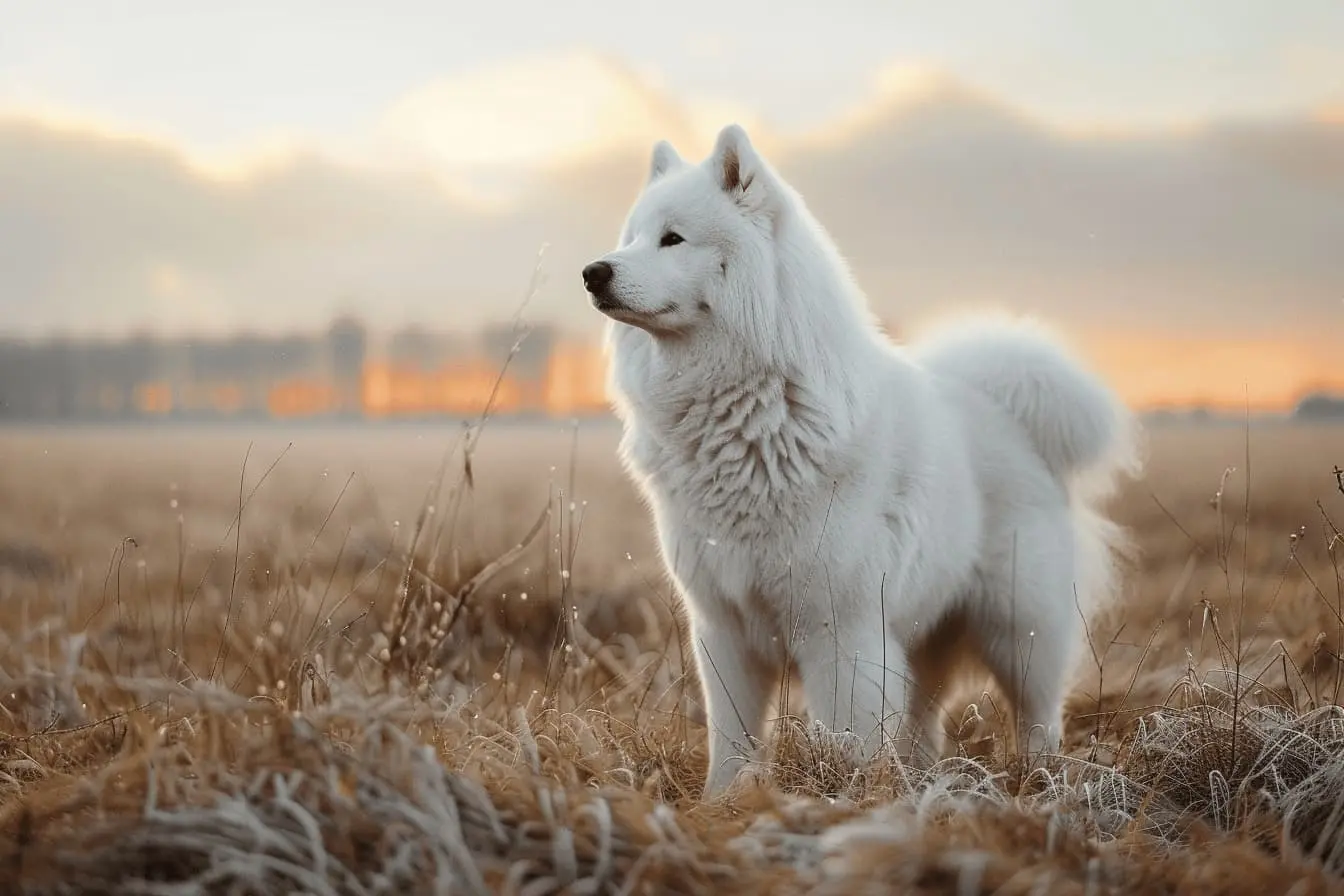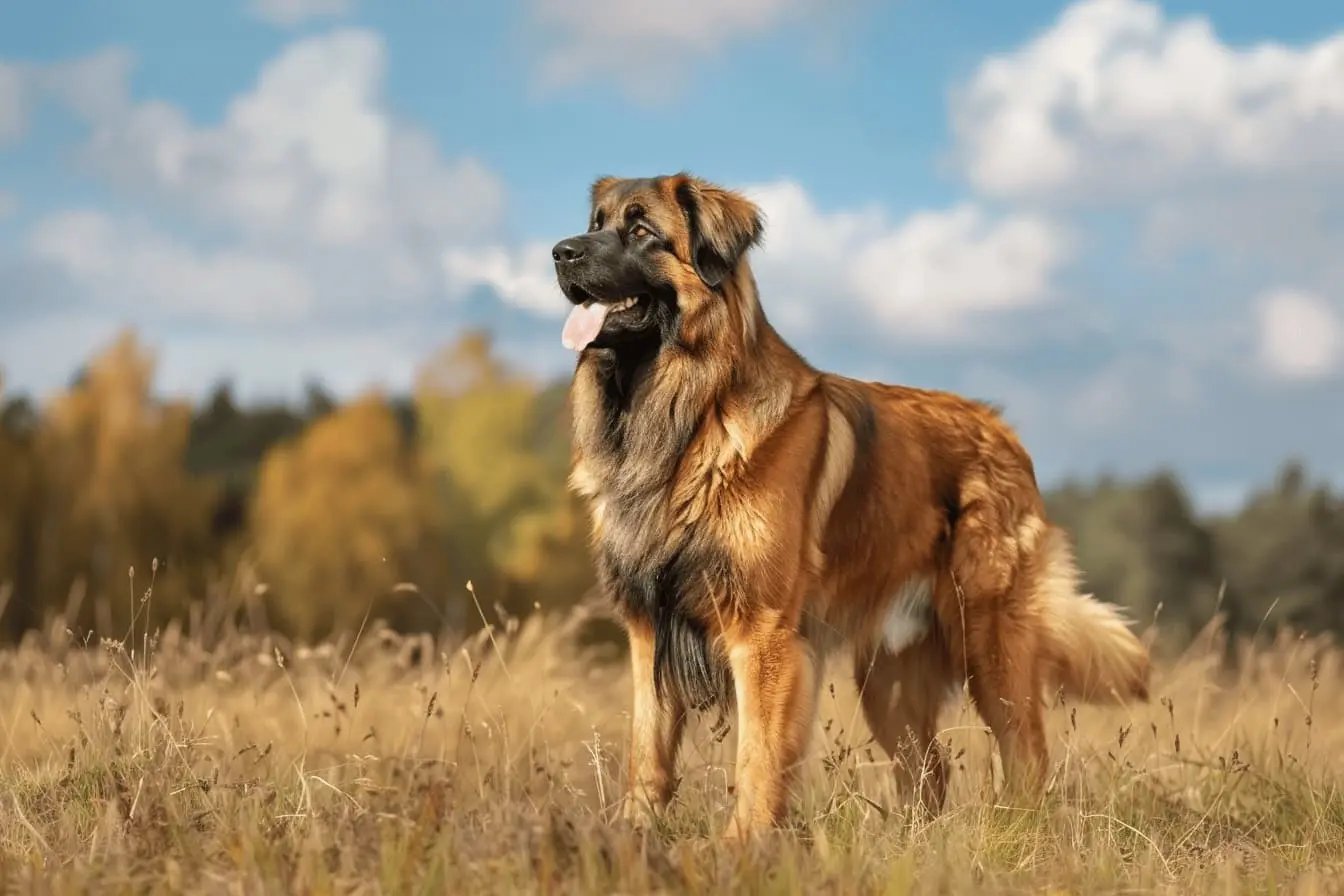
The Samoyed: A Joyful Companion with a Heart as Pure as Snow
The Samoyed, with its stunning white coat, smiling face, and gentle demeanour, is more than just a beautiful breed; it embodies joy, companionship, and a remarkable affinity for family life. Originating from the harsh climates of Siberia, where they were bred by the Samoyedic peoples to herd reindeer and pull sleds, Samoyeds today are cherished for their friendly nature, intelligence, and adaptability. If you're contemplating adding a Samoyed to your family, understanding the breed's specific needs, characteristics, and temperament is essential. This comprehensive guide will provide you with everything you need to know about owning a Samoyed.
Breed Overview
Samoyeds are medium to large-sized dogs, known for their plush white coat and "Sammy smile." They are part of the Spitz family, a group known for their endurance, thick fur, and wolf-like appearance. Samoyeds are versatile, excelling in various roles from family pets to show dogs, and even as working dogs in colder climates.
Physical Characteristics
- Size: Samoyeds typically stand about 19 to 24 inches at the shoulder, with males being larger. They weigh between 23 to 27 kg, with some males exceeding this range.
- Coat and Colour: They boast a dense, double-layer coat that is always white, or sometimes biscuit-coloured. This coat was designed to protect them from harsh Siberian winters, but it requires regular grooming.
- Lifespan: The average lifespan of a Samoyed is around 12-14 years.
Personality and Temperament
Samoyeds are known for their friendly, gentle, and adaptable nature. They are incredibly social and thrive on human companionship, often forming strong bonds with each family member. Samoyeds are excellent with children and usually get along well with other dogs and pets.
Their intelligence and willingness to please make them relatively easy to train, though they can have a stubborn streak. They are known for their "Sammy smile," a gentle expression that reflects their joyful and friendly disposition.
Exercise and Training
Samoyeds have high energy levels and require regular exercise to stay healthy and content. Daily walks, play sessions, and access to a securely fenced garden are recommended. They excel in activities such as agility, herding, and weight pulling, which also provide mental stimulation.
Training should begin early, focusing on socialisation, obedience, and manners. Samoyeds are eager to learn and respond well to positive reinforcement techniques. Consistency and patience are key, as their independent nature can sometimes challenge training efforts.
Health and Care
Samoyeds are generally healthy, but they can be prone to certain genetic conditions, including hip dysplasia, eye disorders, and heart issues. Regular veterinary check-ups and a balanced diet are important for their well-being.
Their thick coat requires regular grooming to prevent matting and manage shedding. Daily brushing is recommended, along with more thorough grooming sessions during their shedding seasons. Despite the effort, their stunning coat is one of the breed's most endearing features.
Living with a Samoyed
Samoyeds are adaptable and can thrive in various living situations, provided they are part of family activities. They do best in homes where they can receive ample attention and interaction. Their love for the outdoors makes them great companions for active families.
Their coat provides insulation, making them more comfortable in cooler climates. In warmer climates, precautions should be taken to prevent overheating. Samoyeds are known for their tendency to bark and dig, which can be managed with proper training and exercise.
Is the Samoyed Right for You?
If you're seeking a joyful, loving companion who is deeply integrated into family life and enjoys being active, the Samoyed may be the perfect breed for you. They are well-suited for individuals and families who can dedicate time to grooming, exercise, and affection.
However, if you are looking for a low-maintenance breed or live in a very hot climate, a Samoyed might not be the best fit for your lifestyle, given their grooming needs and preference for cooler temperatures.
Conclusion
The Samoyed is a breed that offers boundless joy, loyalty, and companionship. With the right care, environment, and commitment to their needs, a Samoyed can become an irreplaceable member of your family, enriching your life with their playful spirit and loving nature. Whether engaging in outdoor adventures, participating in dog sports, or simply relaxing at home, a Samoyed brings a touch of brightness and warmth to every moment, making them a cherished companion for those fortunate enough to share their lives with one.
Vets near you
Speciality vets
- Aquatics vet specialists
- Birds vet specialists
- Camelids vet specialists
- Cats vet specialists
- Cattle vet specialists
- Deer vet specialists
- Dogs vet specialists
- Equines vet specialists
- Exotic vet specialists
- Goats vet specialists
- Pigs vet specialists
- Poultry vet specialists
- Sheep vet specialists
- Small Mammals vet specialists
- Wild vet specialists
Vet facilities
- Accessible by public transport
- Blood testing
- Car park nearby
- Client car park
- Dentistry
- Diagnostic imaging
- Disabled public access
- Flea and worm treatments
- Microchipping
- Mobile services
- Neutering
- Open at weekends
- Out-of-hours service
- Referral interests
- Referrals only
- Street parking outside
- Toilets available
- Vaccinations



